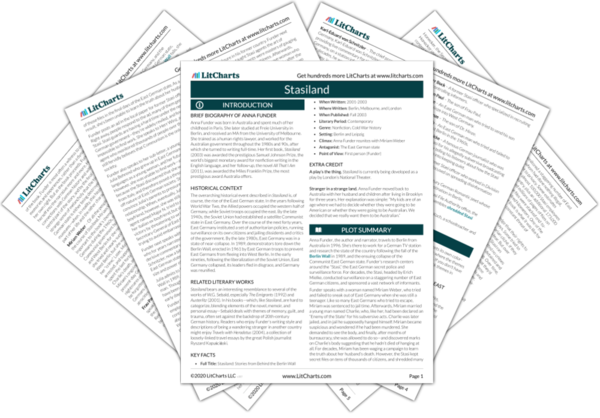Von Schnitzler is using a coping mechanism often seen in soldiers, fascists, and criminals: he acknowledges that he did something wrong (he made propaganda), but insists that he wasn’t as bad as some other people (the people who exaggerated harvest results). At the end of their conversation, Funder seems to crack under the pressure of the cognitive dissonance in his brain: he claims he did nothing wrong, and yet he’s hated by millions.
